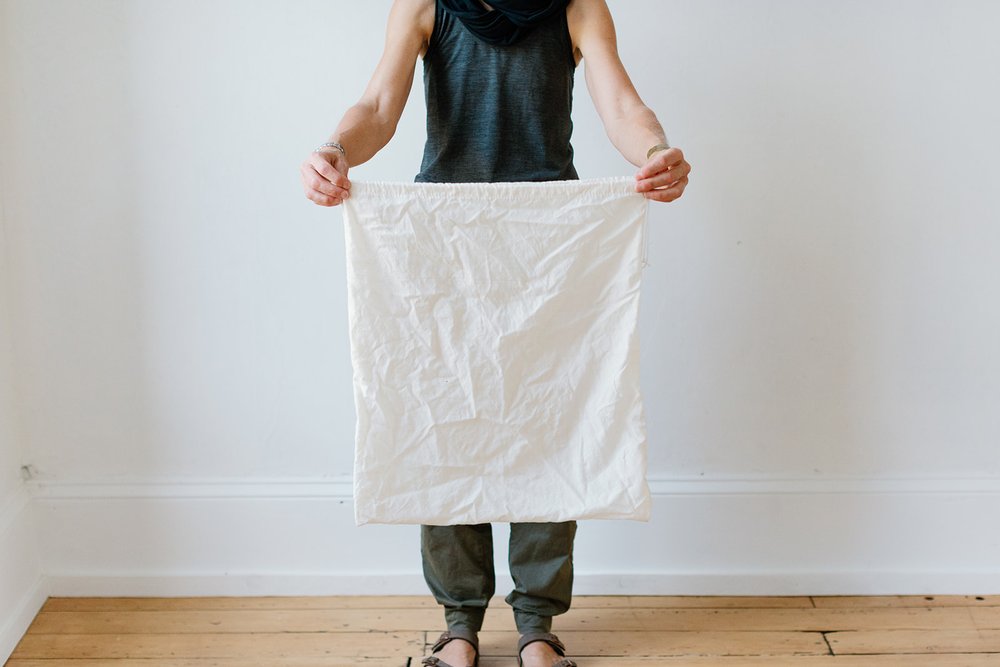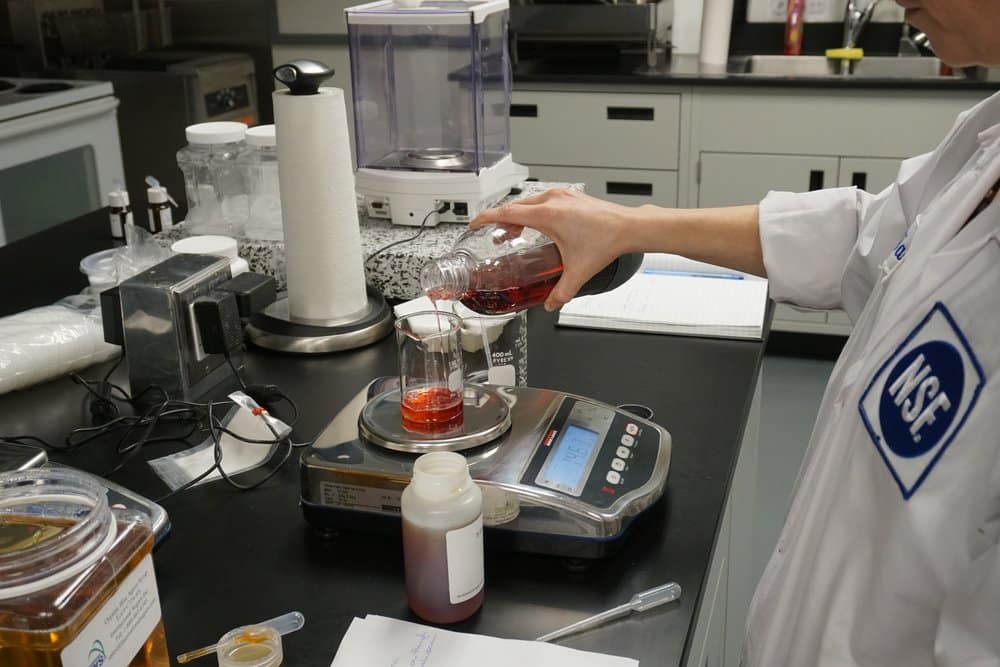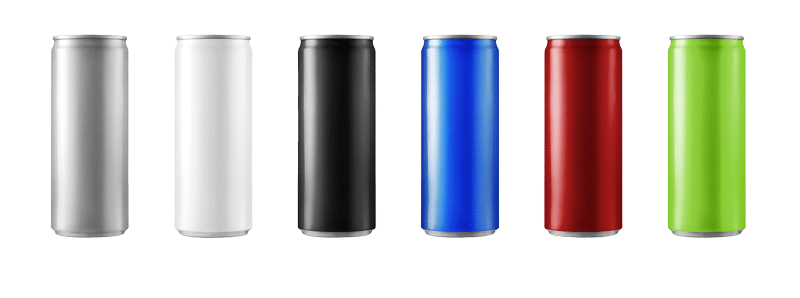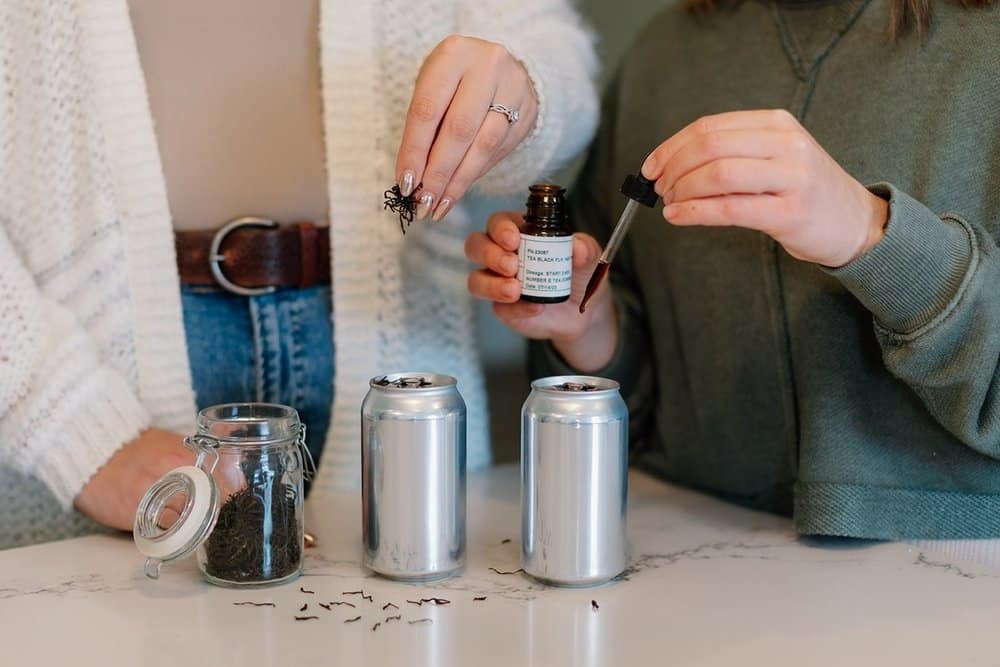Have you ever wondered how our flavourful sparkling teas were made? Believe me when I say that creating palatable sparkling tea is an in depth process that takes both effort and time. In this article of our new series called “Life of a Tea Brewer,” you’ll read about one of the most important steps in our creative process – selecting the base for our next tea.
How we choose our tea base
Whenever it’s time to start formulating a new flavor we often ask ourselves what tea we should play around with next. Should we go for the one that we fell in love with while traveling or are we thinking of something completely different? Should we focus on a certain tea type? Experiment with a strong black tea, a steamed green tea, or maybe a delicate white tea. Should we choose tea from a specific country? Like a well known tea producing region such as India, China, or Japan? Or maybe go with a tea from a lesser known region. Our final decision is made after a careful analysis of tea components such as aroma, flavour, liquor, and of what we could possibly mix the tea with.
For example – during my Tea Sommelier Certification through the Canadian Tea Association, I was introduced to a tea called White Silver Needle. From what I remember, this white tea from China had a distinctive apricot taste. So adding some apricot component to this recipe would be a match made in heaven. We could choose to leave it as is or combine it with some other ingredients in order to add layers to the final product. Although we would love to use White Silver Needle, it is so expensive that it is impossible for us to use it at this time.
If you ask me which tea I would like to work with the most – my choice would be Tulip Garden, a green tea produced by Renegade Tea Estate located in Georgia. However, their production is so limited that it would not be possible to order enough to make even a small batch. As you can see, the possibilities are endless which brings some challenges to the process. That is why creating craft sparkling teas is so interesting.
Loose Leaf vs Tea Flavour
For us – working with loose tea leaves was a decision we made at the very beginning. We are convinced that single estate tea adds a depth of flavour and a deep color to the liquor. This enhances the tasting experience and cannot be replicated with mass-produced iced teas. But quality loose leaf tea can be costly. Let’s look at the White Silver Needle tea once more. Depending on the origin and the quality, this tea can go up to $500.00 for a kilogram. So using this specific tea would significantly increase our production cost and therefore our retail price. We use on average 6 kg of tea for every 500 liters produced. You can now understand why our sparkling teas cannot be sold at the same price as commercially produced ones.

We use between 3 and 4 of those bags for every 500 litres produced.
Why are we not using tea flavour?
Many different corporations have launched RTD (ready to drink) iced tea in recent years.
Smaller companies like us, focus on developing higher end products that appeal to a specific audience.
On the other side, major brands are targeting bigger markets and creating iced teas that can be mass produced. For economical reasons and time saving purposes those products are often made with natural tea flavour or extracts. The nice thing about it is that it dissolves instantly which takes away the need for steeping. I don’t know much about tea aromates. But from what I understand it comes in a liquid form and is added to your recipe in a recommended percentage. It only comes in one flavour so you end up getting the same tea base from one product to another. By using this, we feel that you end up with a product that doesn’t highlight the tea flavour, that is blend, and overly sweet as companies usually add more sweetener to compensate for the lack of flavour.

Working on our first 3 recipes at the NSF lab in Guelph
Back in 2018 when we did our first trial at the labs, we worked with a food scientist who strongly recommended we should use tea flavour. Although we would love to decrease our production time, our costs, and increase our efficiency, we still think that using tea flavour takes away the creative component of the process.
Experimenting with tea flavour vs. loose leaf
I was able to get my hand on some tea flavour and compared both products to see if my hypothesis was right that loose leaf is better than tea flavour. – resume in table below:
| Tea Flavour | Loose Leaf | |
|---|---|---|
| Liquor | Tinted Colour | Visually more Aesthetic |
| Aroma | None | Variable |
| Caffeine | No | Yes |
| Cost | Low | High |
| Taste | Same | Depends on Origin |
| Ease of Use | Very Easy | Time Consuming |
| Steeping Time | None | Up to 24 hours |
| Availability | Available Year Round | Depends on Multiple Factors |
In Conclusion
I hope it’s obvious how important authenticity, taste, and affordability are to us. We are passionate about what we do and we hope you have a chance to sample our products.
Sarah + Chris
What do you think? Should we continue using loose leaf tea or should we try to create a new sparkling tea that would replace loose leaf tea for tea flavour? Let us know in the comments below.


